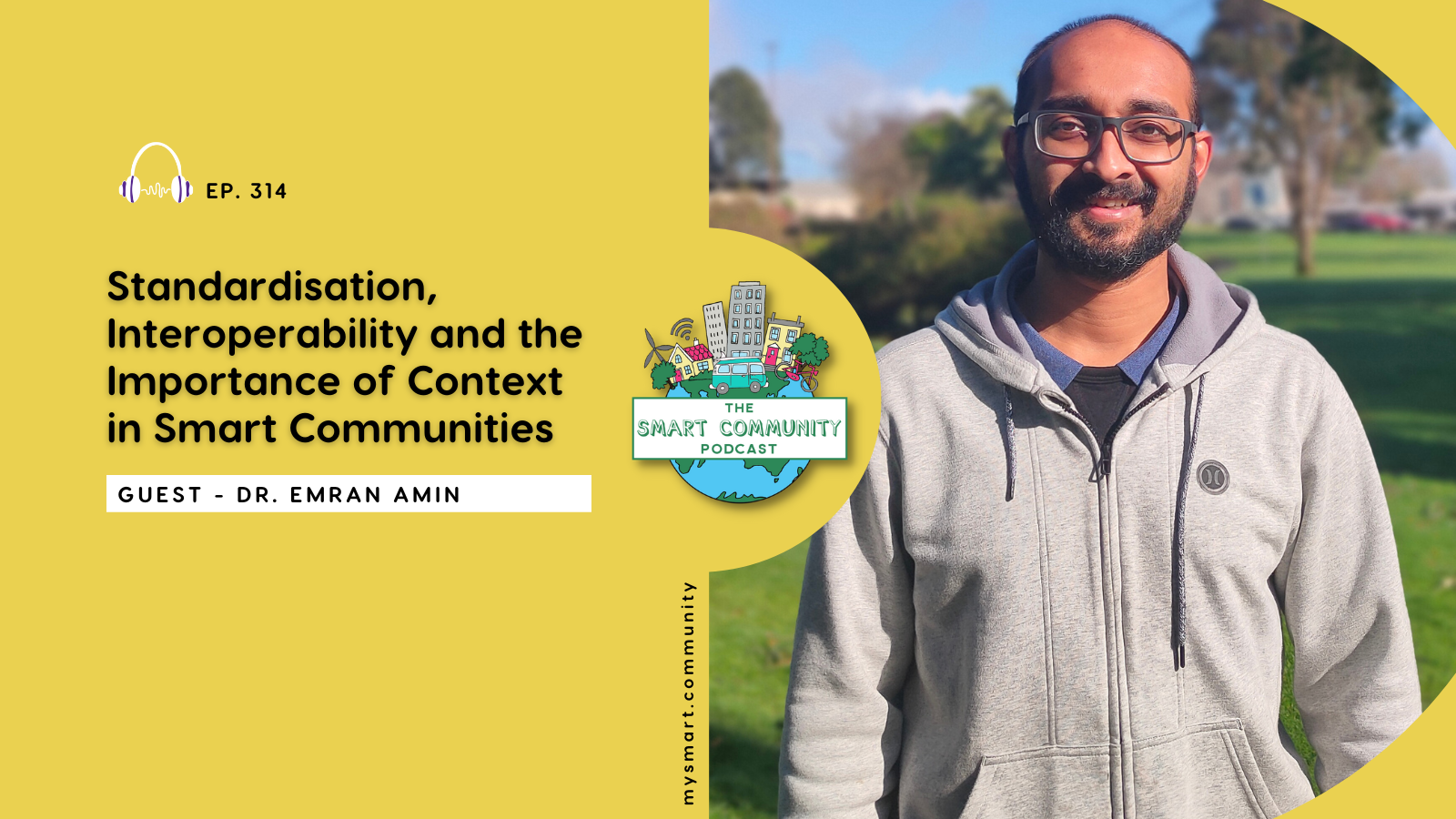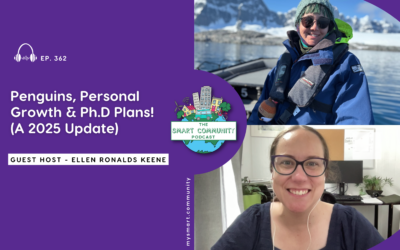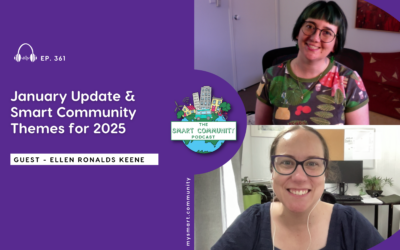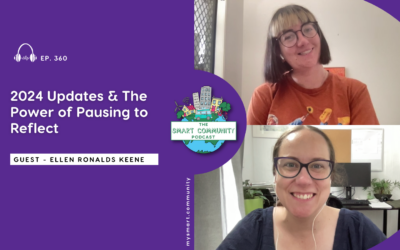Hi #smartcommunity friends! In this episode of the Smart Community Podcast, I have a great conversation with Engineer and Smart Technologies advocate, Dr Emran Amin. Emran tells us about his background as an engineer and academic and his passion for contributing his knowledge of Smart Technologies. Emran explains a bit about the standard for barcodes, parallels between standardisation of barcode technologies to other Smart Technologies such as printable RFID and why interoperability is so important. We then discuss what he’s been working on with the City of Casey as a Community Reference group member in the Smart Casey team, plus some interesting projects he’s worked on in his home country of Bangladesh. We finish our chat talking about data ethics shaping the future of Smart Cities and Communities, and how context really changes the way you approach Smart technologies, data-driven decision making and community engagement. As always we hope you enjoy listening to this episode as much as we enjoyed making it!
Listen here:
What we cover in this episode:
- Emran’s background in engineering and academia, and his passion for Smart Technologies
- The standard for barcodes and parallels between standardisation of barcode technologies to other Smart Technologies
- Why interoperability of IOT technologies is so important.
- What is a Smart Community to Emran and how different the approach needs to be for different contexts, such as Australia compared to Bangladesh
- What Emran’s been working on with the City of Casey as a community reference group member on the Smart Casey Initiative
- Emran’s volunteering work in the Smart Technologies space in Bangladesh, his original home country, and changes he’s seen there over time
- The importance of KPIs and being results focused so Smart projects progress past hype and pilots
- The emerging trend of knowing your principles and values to evaluate technology
- The ways data ethics is shaping the future of Smart Cities and Communities,
- How context really changes the way you approach Smart technologies, data-driven decision making and community engagement
Quotes:
“I have always had a passion to contribute in this field of Smart Technologies, whether it’s IoT, Internet of Things, machine to machine communication,…automation, or currently, we are talking about digital twins.
“I’ve done a lot of voluntary work in Bangladesh, which is my original home country…on how Internet of Things, or IoT, can enable the young population because Bangladesh has a huge young population and big potential. And I’m always passionate about giving back to my country, especially the young population with technology awareness and technology know-how that they need.”
“When we say barcode or QR code nowadays, you just print it like anything, because it’s standardised. Anywhere in the world, you can just read a QR code with your mobile phone. But it took a lot of years to come with this technology, there was a lot of iterations…to come up with the standards.”
“So what’s the standard for IoT? Can we have an interoperable system? That’s a big question, because …we always get very much fascinated about technology that we forget about a lot of issues that need to be happening. Like, it’s a lot of pieces of the puzzle that need to be replaced for the technology to thrive and have ubiquity. One of them definitely is interoperability and standardization.”
“The fundamental thing is you have this technology as a tool, not the end thing. It’s the tool to take you somewhere you want to go…Technology will be the enabler, but it’s going to be used differently in different time zones, different communities, different contexts. And that’s what I see as a Smart Community.”
“We can do a lot of trials with technologies, but what is the main goal? What are we trying to achieve? What are the KPIs we are trying to put forward for this particular technology or innovation? And then how are we going to achieve that? I’m really KPI-focused for any technologies or any projects. I want to see how we’re analyzing the results and taking the next steps…because [what] I have been seeing with my 10 to 12 years journey in academia and industry [that] there’s a lot of hype.”
“What’s the boundary? Yeah, you’re collecting some data, that’s fine. But when you’re trying to get a pattern out of that, you’re trying to do a mass population analysis to see a pattern out of that, is it going beyond the boundary? Or it’s still within the boundary? We don’t know. There’s a lot of unknowns. First we need to understand and that’s why I’m [not] saying this is good, or this is bad. We haven’t really defined what is good, what is bad. So that’s where we need to start from.”
“Due to the context, due to the environment, due to the mindset of the people, the human factor, the innovations and technologies you need to bring in those countries or those communities will be completely different from what you think. That was one of the first things I learned [working in Bangladesh].”
Links:
Auto ID Labs https://www.autoidlabs.org
IEEE https://www.ieee.org
Episode 300 Moving Beyond The Pilot Panel Episode
Connect:
Find the full show notes at: www.mysmart.community
Connect with Emran via LinkedIn
Connect with me via email: hello@mysmart.community
Connect with My Smart Community via LinkedIn or Twitter and watch on YouTube
The Smart Community Podcast is produced by Perk Digital






0 Comments